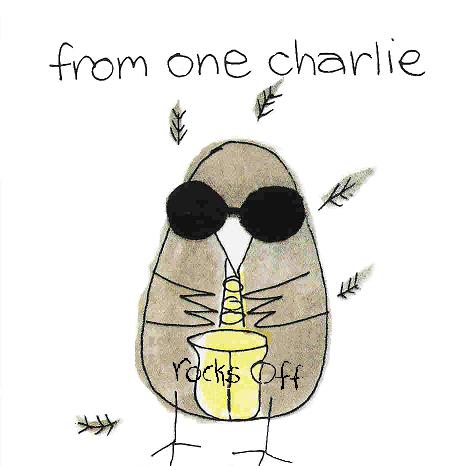| September 8th, 2004 04:11 PM |
|
|
| Ten Thousand Motels |
Superb portrait traces the reign of the 'Queen of the Blues'
By Renee Graham, Globe Staff | September 8, 2004
Queen: The Life and Music of Dinah Washington, By Nadine Cohodas, Pantheon, 559 pp., illustrated, $28.50
Even when she sang a ballad, Dinah Washington had a lot of Saturday-night sass in her voice. She could express longing or loss, but always there was the suggestion of something naughty and provocative. When she had her way with a song, Washington displayed the command of a woman who knew about living loose and fast, and maybe even suspected she would never die of old age.
Washington was only 39 when an accidental overdose of prescription drugs killed her in 1963, but she packed a lot of living into her brief, bawdy life: seven marriages, extravagant spending sprees, even an attempt on her life, perhaps by a spurned former lover. She was also one of the great interpreters of American music, equal to Billie Holiday and Ella Fitzgerald, even though the name of the woman affectionately known as the "Queen of the Blues, Queen of the Juke Boxes" is often unjustly overlooked.
"Queen," Nadine Cohodas's superb biography, restores the luster of Washington's crown, detailing a life lived not always wisely but certainly with vigor. Fortunately, this isn't a book concerned only with gossip and dish. Cohodas pays keen attention to Washington's prolific career, during which she moved confidently among jazz, blues, pop standards, and R&B.
Born Ruth Lee Jones in Tuscaloosa, Ala., in 1924, she inherited her mother's love of music. Once young Ruth's family moved to Chicago, her vocal abilities were apparent, and "she could master anything she heard, from hymns to Haydn," Cohodas writes. When her mother was appointed gospel choir director at a local church, the girl quickly distinguished herself with a musical maturity beyond her years.
By 15, she was one of Chicago's best-known gospel singers. Still, she was unsatisfied making a joyful noise only for the Lord. "I wanna be a show girl," she often said. Despite her mother's objections, she entered a talent contest, singing Holiday's "I Can't Face the Music," and won, giving her her first taste of success outside of gospel music.
Within two years, Ruth Jones became Dinah Washington at the suggestion of a club promoter who told her she should have a name "that rolls off people's tongues like rich liquor." At 18, she was the featured singer with Lionel Hampton's band -- and was already married to her first husband.
Washington often projected a self-confidence that belied the many slights she endured, Cohodas asserts. Short, dark-skinned, and chubby, she was not considered beautiful. Worse still, Washington had to negotiate a racial landscape scarred by segregation, where black performers were rarely allowed to stay at the very hotels where they performed.
Of course, Washington's main concern was singing, and if she had to put up with bigotry to share her talents, so be it. Cohodas devotes significant chapters to Washington's music, deconstructing her concerts and studio sessions, most notably her signature 1959 hit, "What a Diff'rence a Day Makes." As Cohodas tells it, Washington was initially reluctant to record the song, believing it was too different from her usual repertoire, and she agreed only to a single take. Remarkably, she nailed it in one shot, and the song earned her a Grammy. Already a huge R&B star, Washington now found success with white audiences; the song was her first pop hit.
"It was a singular recipe: strings from the mainstream, a beat from rhythm and blues, leavened with Dinah's soul," Cohodas writes.
If Washington enjoyed anything more than music, it was men. She had countless affairs, sometimes two or three at a time, and the last of her seven husbands was National Football League Hall of Famer Dick "Night Train" Lane. She also loved to shop for furs, jewelry, and shoes to add to her collection of 300 pairs. Still, her greatest obsession may have been her weight. Years of crazy diets and pills wrecked her health and, some believed, may have contributed to her death.
Most, however, discounted the idea of suicide. A woman who lived as large and lavishly as Washington would "never go so quietly on purpose," Cohodas writes. By the end of this outstanding book, it's hard to disagree. As remembered here, Washington's life was as bold and inviting as her songs, which endure because, as "Miss D" once said, "I like to get inside of a tune and make it mean something to the people that listen."
"Many singers on stage are merely little girls singing romantic songs," famed jazz critic Ralph J. Gleason wrote of the singer after her death. Washington, he said, "was a woman singing about life. And she made you believe."
|
| September 8th, 2004 08:06 PM |
|
|
| Soldatti |
Thanks for the info. |
|

 CHAT
ROOM aka THE FUN HOUSE] [
CHAT
ROOM aka THE FUN HOUSE] [ RESTROOMS]
RESTROOMS]